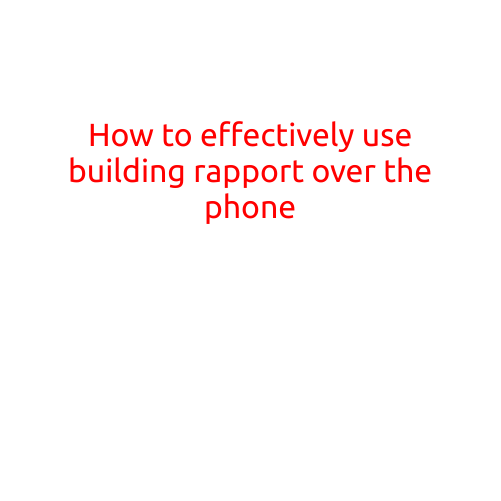
When Should You Handling High Call Volumes?
Handling high call volumes can be a daunting task for any customer service team. It requires a combination of advanced technology, strategic planning, and effective communication to ensure that customers receive the attention they need. In this article, we’ll explore when you should handle high call volumes and how to do it efficiently.
Why High Call Volumes Are a Reality
High call volumes can occur due to a variety of reasons, including:
- Peak Season: During holidays, special events, or holidays, customer demand for services may surge, leading to an increase in call volume.
- New Product Launches: Excitement around new products or services can drive an influx of calls from curious customers.
- Marketing Campaigns: Effective marketing campaigns can generate a high volume of calls from interested customers.
- Outages or Disruptions: Service disruptions or outages can lead to a surge in calls from frustrated customers seeking assistance.
When to Handle High Call Volumes
You may need to handle high call volumes when:
- Your Business is Growing: If your business is experiencing rapid growth, anticipate an increase in call volume as new customers become aware of your services.
- You’re Experiencing a Peak Season: Be prepared for high call volumes during peak seasons, such as holidays or summer months.
- You’re Introducing New Services: Introducing new services or products can generate a high volume of calls from curious customers.
- You’re Experiencing Technical Issues: When experiencing technical issues or outages, prepare for an influx of calls from frustrated customers seeking assistance.
How to Handle High Call Volumes Efficiently
To handle high call volumes efficiently, follow these best practices:
- Scale your Team: Hire additional staff or temporary workers to handle the increased volume of calls.
- Implement Technology: Leverage technology such as automated call routing, call queueing, and remote work capabilities to improve efficiency.
- Train Your Team: Ensure that your team is adequately trained to handle high call volumes, focusing on empathy, communication, and resolution skills.
- Prioritize Calls: Implement a prioritization system to categorize calls by urgency, allowing agents to focus on the most critical issues first.
- Communicate Effectively: Keep customers informed about wait times, estimated answer times, and resolution progress to manage expectations.
- Monitor and Analyze: Continuously monitor and analyze call metrics to identify areas for improvement and optimize the customer service process.
- Consider Outsourcing: If high call volumes are persistent, consider outsourcing some or all of your customer service operations to specialized providers.
Conclusion
Handling high call volumes requires careful planning, effective communication, and strategic execution. By understanding when to expect high call volumes and implementing the right strategies, you can ensure that your customer service team provides exceptional service even during periods of peak demand. Remember to prioritize training, technology, and communication to optimize efficiency and customer satisfaction.





